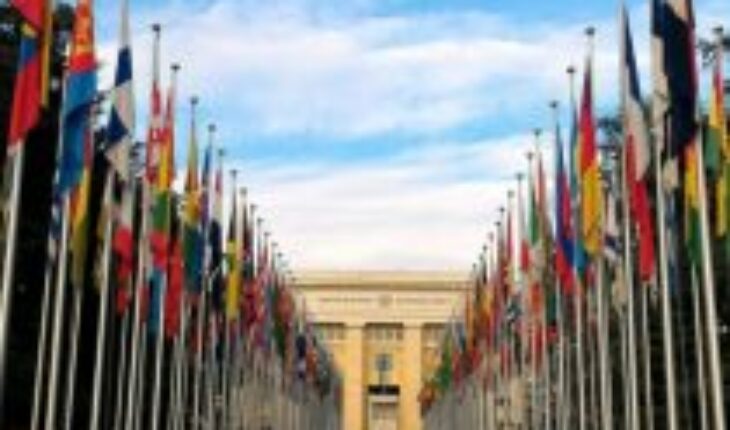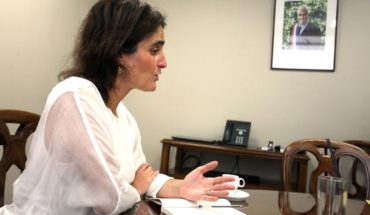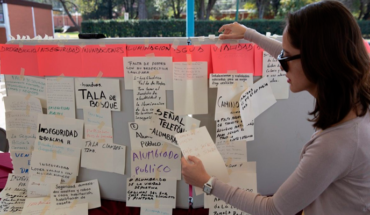“In accordance with the theoretical and methodological orientations of the Valparaíso Forum, the enormous limitations of the UN and, specifically, of the Security Council, cannot be understood if they are not placed in a long-term historical perspective.”
There are already two weeks of war between Russia and Ukraine. Parallel to the military operations, the diplomacy of both countries is conducting negotiations to end the war. Nor can we forget, as we announced in our previous column, the economic sanctions by the European Union, the United Kingdom, the United States and Canada to pressure Moscow to abandon the military route.
As soon as the conflict began, the UN Security Council met in an emergency to discuss the crisis. The United States and Albania have filed a resolution condemning Russia’s invasion of Ukraine. In the vote held on 25 February, of the 15 members of the Council, 11 voted in favour and 3 abstained (China, India and the United Arab Emirates). Only Russia voted against it, causing the project to be rejected. Then, on March 2, the UN General Assembly passed a resolution condemning it, with the support of 141 of the 193 countries that make it up.
Despite these resolutions, the feeling that has been expressed in various media and social networks is that the UN lacks the capacity to resolve the conflict between Russia and Ukraine.
In accordance with the theoretical and methodological orientations of the Valparaíso Forum, the enormous limitations of the UN and, specifically, of the Security Council, cannot be understood if they are not placed in a long-term historical perspective.
A bit of history
To understand what is currently happening with the UN’s role in the Russia-Ukraine conflict, we must go back to the first half of the twentieth century. With the end of the First World War in 1918, the international community considered vital the construction of a new order that would allow an end to the war conflicts. This is how the League of Nations was created, whose purpose was to guarantee the peace of the international system. But in its very origin it suffered from enormous defects to ensure its existence: the United States refused to be a member, the Soviet Union had been excluded from the Society, and there were no distinctions between small nations and great powers in terms of the right to vote.
Its inability to sanction peace-threatening powers – Italy’s invasion of Abyssinia, Nazi Germany’s occupation of the Rhineland, and the Sino-Japanese War – ended up making the League of Nations an irrelevant institution, as the outbreak of World War II soon demonstrated.
At the end of the war, the Allied powers agreed on the idea of creating a new supranational institutionality that would guarantee peace. At the San Francisco conference (1945), representatives of fifty countries drafted the UN Charter, in which they established as purposes and principles the maintenance of international peace and security, the suppression of acts of aggression and the resolution of international disputes by peaceful means, emphasizing international cooperation and respect for human rights. To guarantee these principles, a Security Council was established, whose mission would be to safeguard world peace through resolutions binding on all Member States.
The Security Council and the problem of the veto
The most important organ of the UN is the Security Council, since, according to the UN Charter, it is the only one that can force member states to comply with its resolutions. The Council is made up of fifteen States – five permanent and ten non-permanent – and each of them has one vote. Permanent members have a prerogative, which has commonly been defined as “veto”. The Article 27 of the UN Charter states that decisions taken by the Security Council shall be adopted if they have the affirmative vote of nine members. But it also indicates that “decisions of the Security Council on all other questions shall be taken by the affirmative vote of nine members, including the affirmative votes of all permanent members”. Therefore, if there is no consensus among the permanent members, decisions shall not be adopted.
This has led to this right of veto being used arbitrarily by the permanent members of the Security Council. United States and Russia – and antThe Soviet Union has systematically resorted to the veto to block each other in the international arena. For example, during May 2014 alone, both countries exercised this right 273 times – 83 times in the United States and 130 in Russia.
Throughout the history of the UN there have been proposals for reform of the Security Council. These include:(a) the elimination of the right of veto (b) not allowing its application in cases of genocide or war crimes, and (c) the expansion of permanent and non-permanent members. In none of these cases was the necessary agreement reached for its approval.
With regard to the expansion of the membership, President Barack Obama was in favor of incorporating India – the largest democracy in the world, with more than one billion inhabitants – as a permanent member of the Security Council, coinciding in this purpose with Russian President Vladimir Putin. Previously, in 2005, Germany, Japan, India and Brazil (G–4) made a proposal to expand the number of permanent and non-permanent members sectored by continent, aspiring to fill the seats of permanent members as well. This proposal also contemplated granting permanent membership to at least two African nations. However, US President George Bush announced his rejection of this initiative. In the same vein, the Chinese ambassador to the UN, Wang Guangya, said that the G-4 initiative in his country’s opinion was dangerous since it could divide the UN. As a member of the G-4, Germany has insisted on the need for the Security Council to reflect in its composition the real distribution of power in the world. Germany’s request makes a lot of sense when you consider that it contributes 28% of the UN budget together with Japan. In early September 2015 the G-4 drafted a text to initiate reform of the Council at the UN General Assembly, but eventually China, the United States and Russia refused to sign the initiative.
In addition, Articles 108 and 109 of the UN Charter state that any reform of the same Charter, and by extension, of the Security Council, must be approved by two-thirds of the UN member states, including the five permanent members of the Security Council. Therefore, in the absence of a political agreement between the United States, Russia, the United Kingdom, France and China, it is impossible to think of carrying out the aforementioned reform.
In our next column we will touch on some of the most recent proposals that could open the door to rethinking the UN’s role in maintaining peace.
The content expressed in this opinion column is the sole responsibility of its author, and does not necessarily reflect the editorial line or position of El Mostrador.





